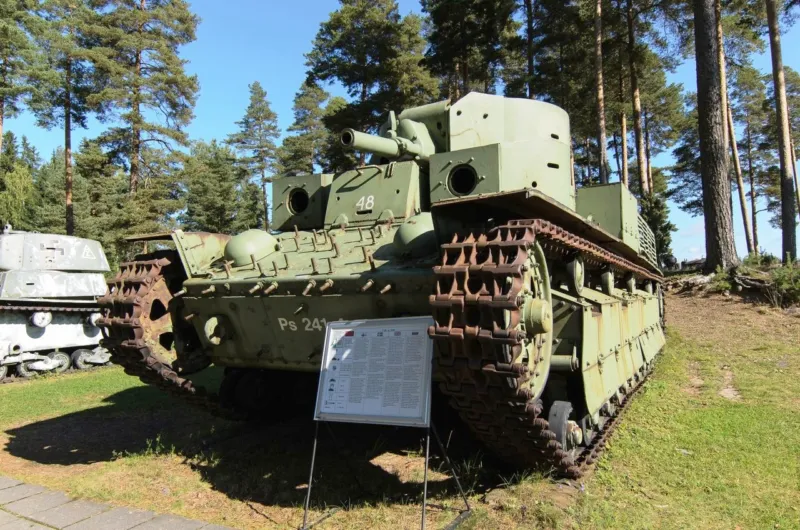
T-28 | |
|---|---|
| País | Unión Soviética |
| Papel | Tanque medio |
| En servicio | 1933–45 |
| Construido | 503 |
el T-28 era un tanque medio soviético de múltiples torretas. El prototipo se completó en 1931, y la producción comenzó a finales de 1932. Era un tanque de apoyo de infantería destinado a romper las defensas fortificadas. El T-28 fue diseñado para complementar el T-35 más pesado (también multi-torreta), con el que compartía diseños de torreta. El tipo no tuvo gran éxito en combate, pero jugó un papel importante como proyecto de desarrollo para los diseñadores de tanques soviéticos. Una serie de nuevas ideas y soluciones que se probaron en el T-28 se incorporaron más tarde en futuros modelos.
Fuente: Tanque T-28 en Wikipedia
| Tank T-28 | |
|---|---|
| Fotógrafo | Unknow |
| Localización | Unknow |
| Fotos | 52 |
| T-28 Mod. 1938 Walk Around | |
|---|---|
| Fotógrafo | Unknow |
| Localización | Unknow |
| Fotos | 33 |
Ver también:
The T-28 Model 1938 was a Soviet medium tank, an evolution of the multi-turreted T-28 design which was developed in the early 1930s. It was designed primarily as an infantry support tank intended to break through fortified defensive lines.
Características principales
The T-28 is instantly recognizable due to its multi-turret design, a concept that was popular during the interwar period, influenced in part by the British Vickers A1E1 Independent.
- Multi-Turret Layout: The tank featured three turrets:
- Main Turret: A large, central cylindrical turret housing the primary armament.
- Two Small Turrets: Two smaller machine gun turrets mounted side-by-side at the front of the hull.
- Armamento: The Model 1938 variant’s key feature was its main gun upgrade:
- Primary Armament: The 76.2 mm L-10 gun, a more powerful weapon with better muzzle velocity and armor penetration than the shorter-barreled KT-28 howitzer used on initial models.
- Secondary Armament: Typically four to five 7.62 mm DT machine guns, with one coaxial to the main gun and one in each of the two smaller forward turrets.
- Mobility and Engine:
- Powered by a Mikulin M-17 V12 engine producing 500 hp.
- It had a decent top speed for its size, around 40 km/h (25 mph).
- Its suspension used a plunger suspension with twin bogies.
- Armadura: The armor protection was thin and flat, typical of early 1930s designs, with original frontal hull and turret armor around 30 mm.
- Tripulación: The tank required a large crew of six.
Historial de operaciones
The T-28 was considered an impressive design for its time, featuring advanced elements like a radio in every tank and an electrically-traversed main turret.
- Combat Use: It was deployed during the Soviet invasion of Poland (1939) and the Winter War against Finland (1939-1940).
- Obsolete by 1941: During the Winter War, its thin armor proved inadequate against Finnish anti-tank guns, leading to the development of the up-armored T-28E variant. By the time of the German invasion of the Soviet Union in 1941, the multi-turreted design was outdated. Many were lost in the early stages of the war due to mechanical issues and superior enemy anti-tank capabilities. The few survivors served in limited capacity until around 1943.
Vistas : 5736
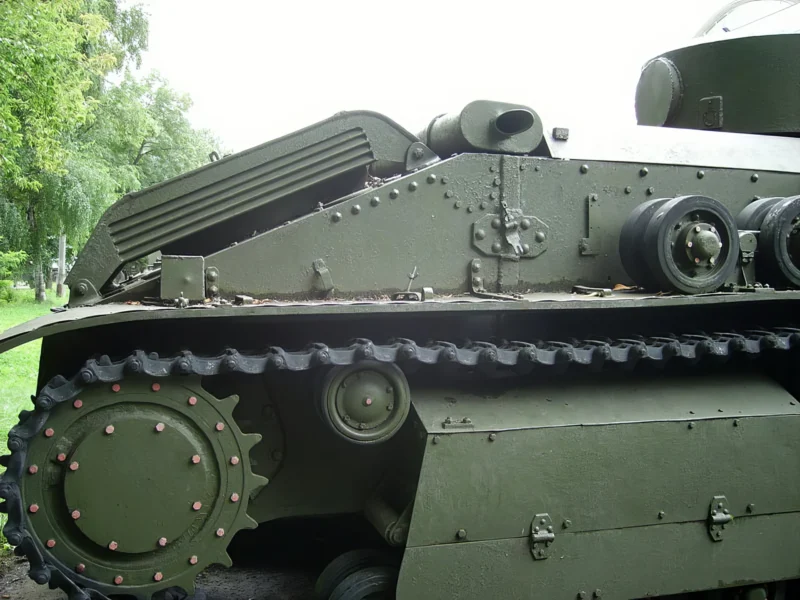
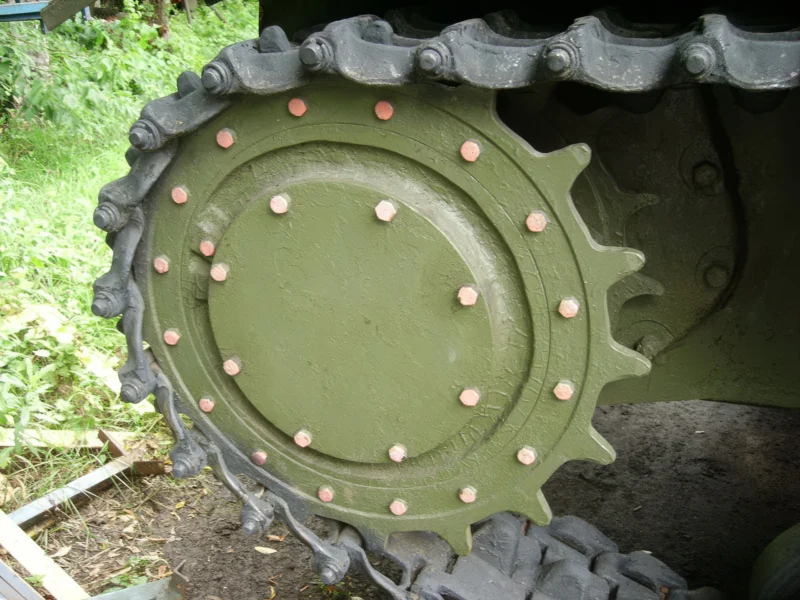
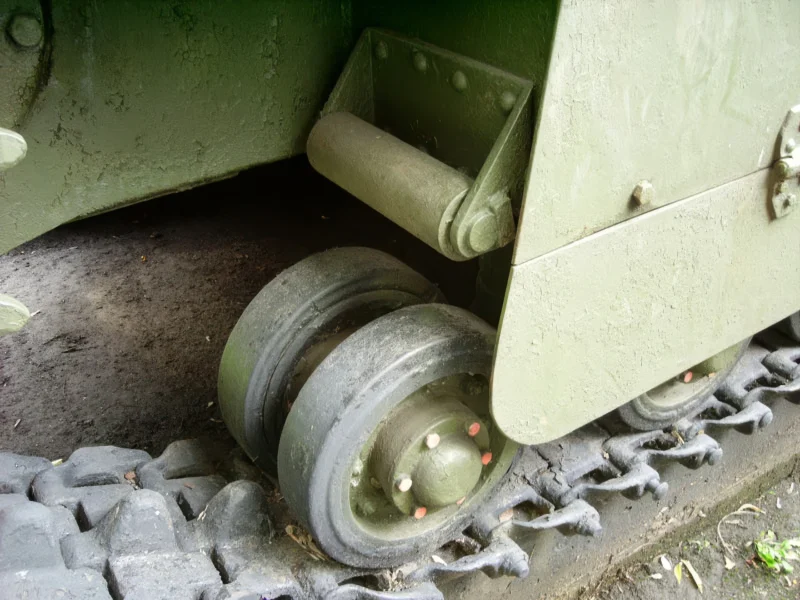
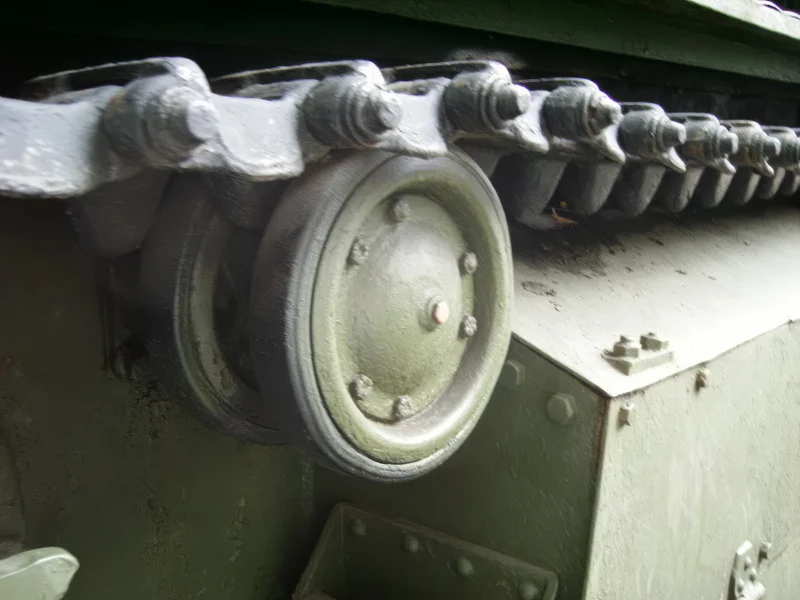
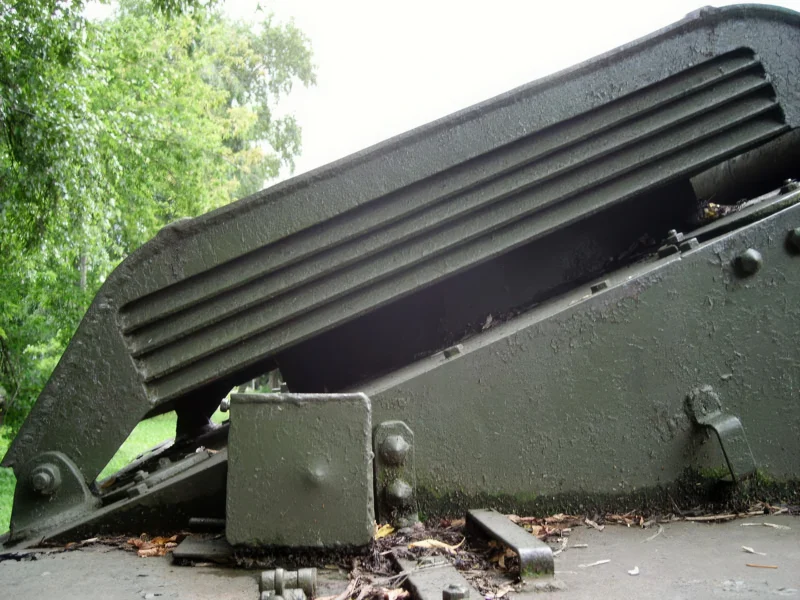
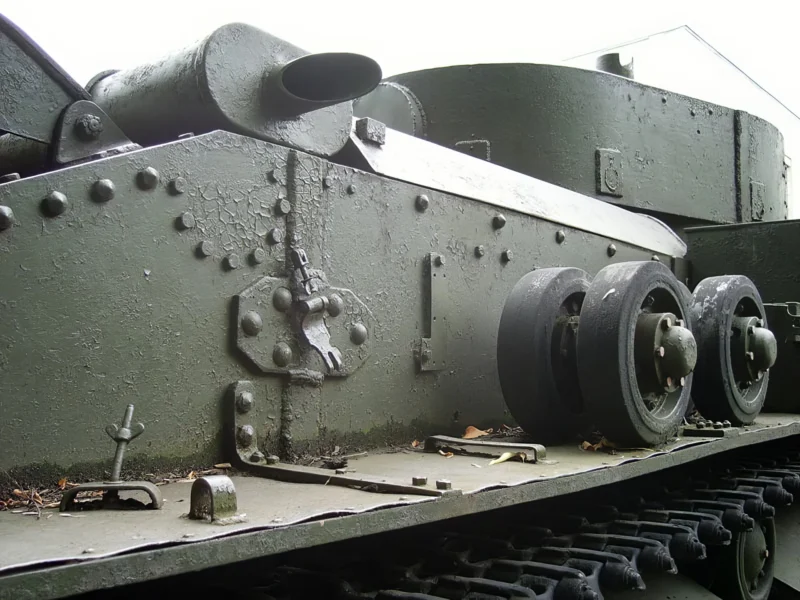
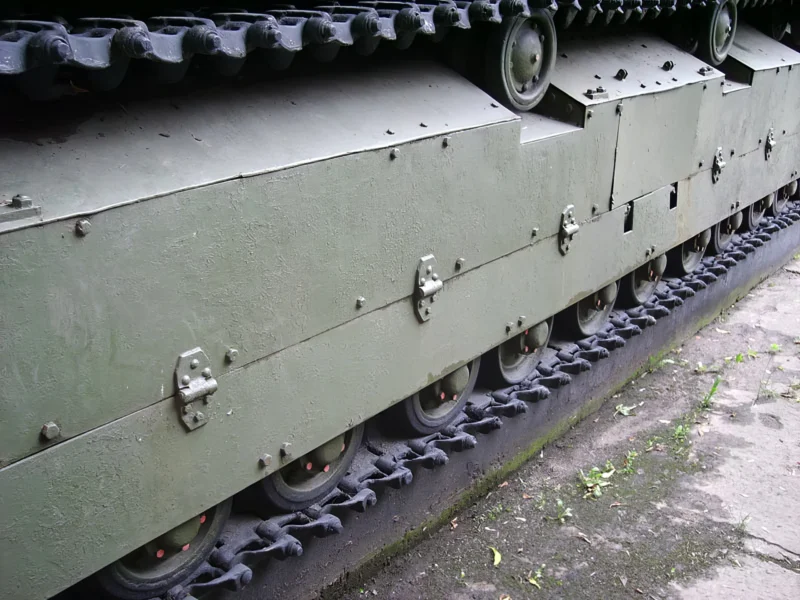
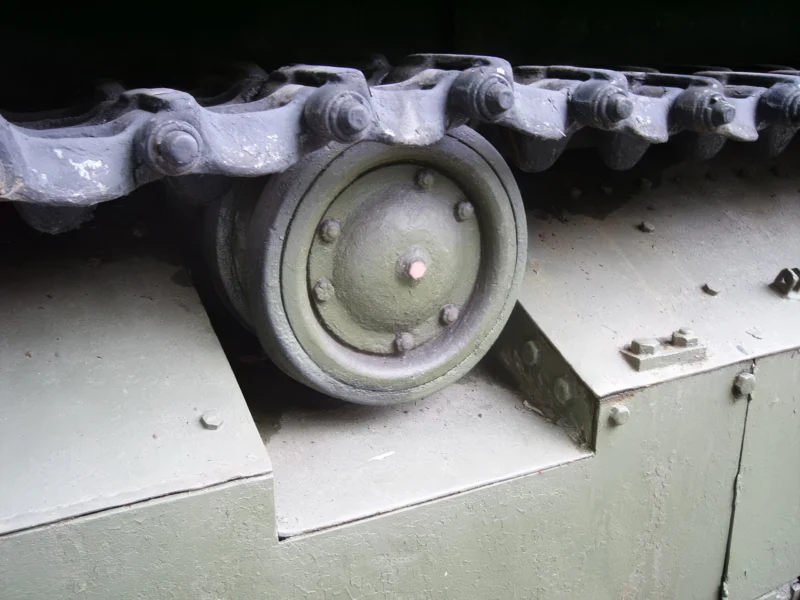
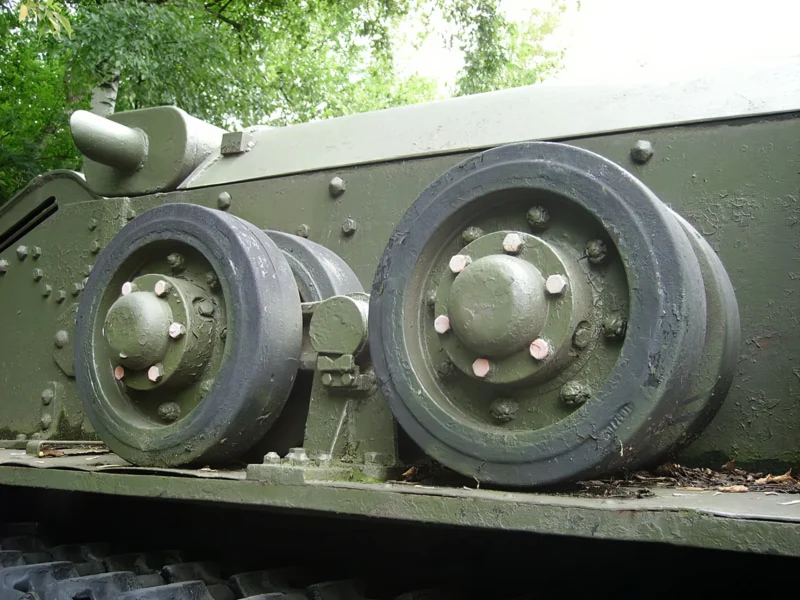


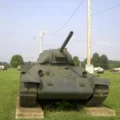
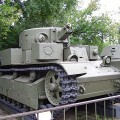
Este es un T-28E, a juzgar por la parte delantera de las torretas de ametralladora.